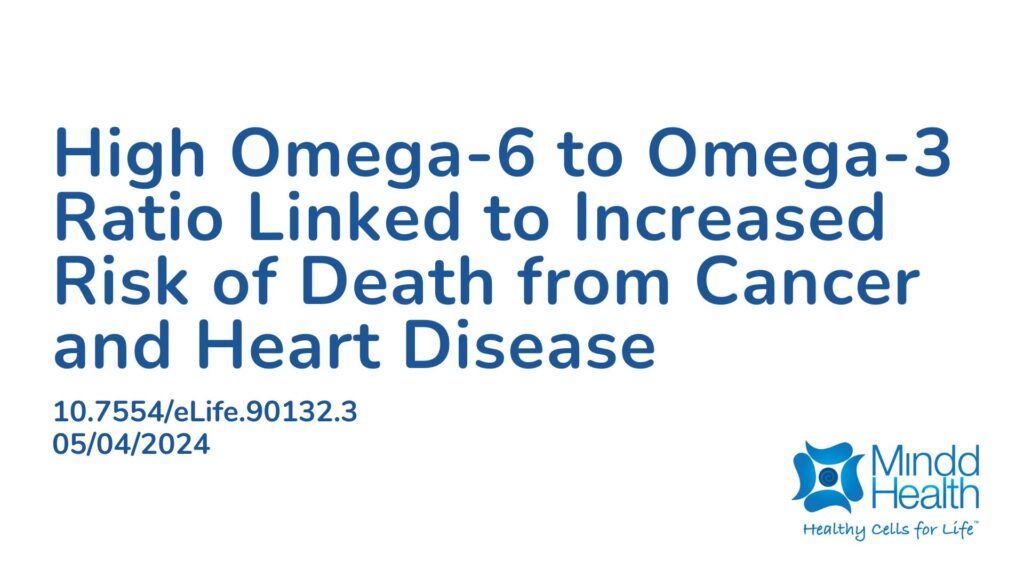Summary:
Cancer and cardiovascular disease are the leading causes of death from non-communicable diseases worldwide. Research suggests that omega-3 and omega-6 polyunsaturated fatty acids (PUFAs) may affect the risk of death from all causes, cancer, and cardiovascular disease, but the findings are mixed, especially for omega-6s. There is also debate about the high omega-6/omega-3 ratio in Western diets, which is much higher than the recommended 1:1 ratio and is thought to contribute to chronic diseases like cancer and cardiovascular disease. To better understand these links, this study examines omega-3 and omega-6 levels in plasma in a large UK population cohort of 85,425 people. Out of these participants, 6,461 died during the study period, including 2,794 from cancer and 1,668 from heart disease. The authors found that people with the highest omega-6/omega-3 ratio had a 26% higher risk of death overall, a 14% higher risk of cancer death, and a 31% higher risk of heart disease death compared to those with the lowest ratio. Both omega-3 and omega-6 fats were linked to a lower risk of death from all causes, cancer, and heart disease, but omega-3s had a stronger protective effect. In conclusion, the study found that having a high ratio of omega-6 to omega-3 fats in the blood is linked to a higher risk of death from any cause, cancer, and heart disease.
Abstract:
Background: Circulating omega-3 and omega-6 polyunsaturated fatty acids (PUFAs) have been associated with various chronic diseases and mortality, but results are conflicting. Few studies examined the role of omega-6/omega-3 ratio in mortality. Methods: We investigated plasma omega-3 and omega-6 PUFAs and their ratio in relation to all-cause and cause-specific mortality in a large prospective cohort, the UK Biobank. Of 85,425 participants who had complete information on circulating PUFAs, 6461 died during follow-up, including 2794 from cancer and 1668 from cardiovascular disease (CVD). Associations were estimated by multivariable Cox proportional hazards regression with adjustment for relevant risk factors. Results: Risk for all three mortality outcomes increased as the ratio of omega-6/omega-3 PUFAs increased (all Ptrend <0.05). Comparing the highest to the lowest quintiles, individuals had 26% (95% CI, 15–38%) higher total mortality, 14% (95% CI, 0–31%) higher cancer mortality, and 31% (95% CI, 10–55%) higher CVD mortality. Moreover, omega-3 and omega-6 PUFAs in plasma were all inversely associated with all-cause, cancer, and CVD mortality, with omega-3 showing stronger effects. Conclusions: Using a population-based cohort in UK Biobank, our study revealed a strong association between the ratio of circulating omega-6/omega-3 PUFAs and the risk of all-cause, cancer, and CVD mortality.
Article Publication Date: 05/04/2024
DOI: 10.7554/eLife.90132.3



